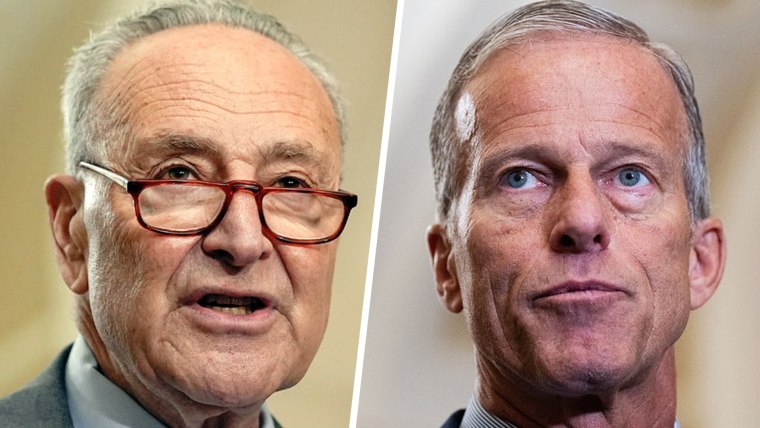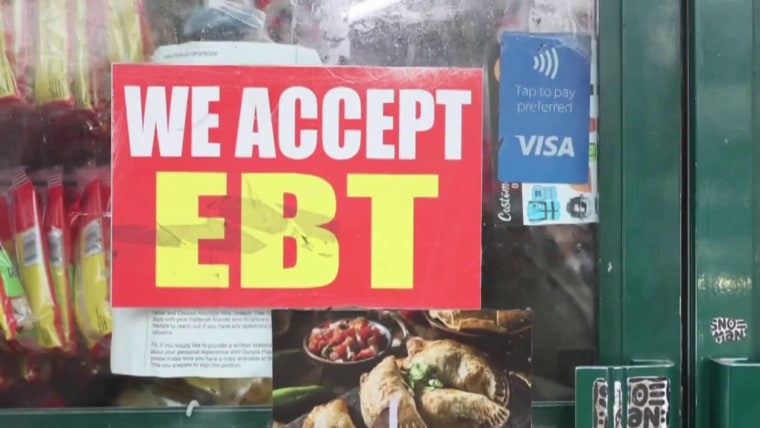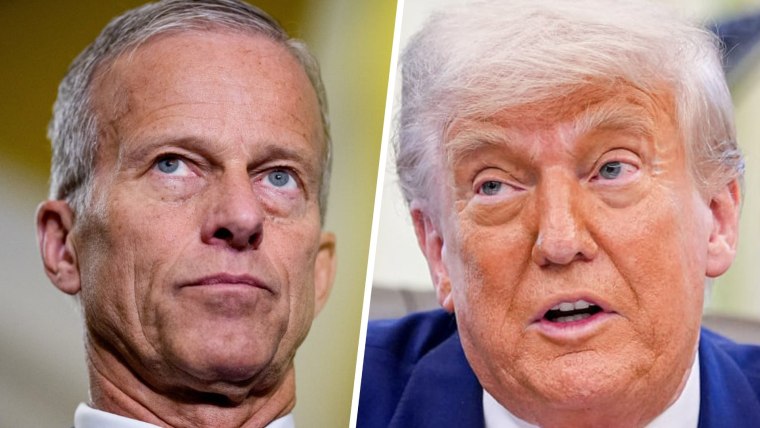On day 38 of the government shutdown, Senate Democrats unveiled their first official offer to reopen the government.
Almost immediately, Republicans said “no.”
The plan, as proposed by Senate Minority Leader Chuck Schumer, D-N.Y., on Friday, aimed to solve one of the key Democratic concerns throughout the shutdown: that Republicans were offering no guarantee that Affordable Care Act subsidies will in fact be extended in some form.
Without an extension, Americans enrolled in Obamacare are poised to see their premiums skyrocket next year.
The proposal called for reopening the government with what Democrats describe as a “clean” stopgap funding bill, coupled with a package of three appropriations bills that have already received bipartisan approval.

Republicans are mostly fine with that idea. In fact, Senate Majority Leader John Thune, R-S.D., has been working to pass a similar bill. But Democrats also have an additional demand: a one-year extension of Obamacare subsidies, allowing lawmakers to set up a bipartisan committee to then negotiate future reforms.
“This is a reasonable offer that reopens the government, deals with health care affordability, and begins the process of negotiating reforms to the ACA tax credits for the future,” Schumer said Friday.
The blueprint was notably the first explicit proposal Schumer has publicly offered since the shutdown began, with the New York Democrat preferring to keep his caucus’ demands more enigmatic.
“Now, the ball is in the Republicans’ court,” Schumer said. “We need Republicans to just say ‘yes.’”
Republicans, however, are not playing ball.
In a swift and assertive manner, GOP senators shot down the Democratic proposal, ensuring that the shutdown will continue with no end in sight.
“I think everybody who follows this knows that’s a non-starter,” Thune told reporters shortly after Schumer unveiled his proposal.
“There is no way the Obamacare extension is the negotiation,” he added. “That’s what we’re going to negotiate once the government opens up.”
Throughout the shutdown, Republicans have maintained that Democrats need to reopen the government before they’ll have a conversation about the Obamacare subsidies. Thune has offered Democrats a vote on extending the Obamacare subsidies, but Democrats fear that’s all it will be — a vote.
In some ways, the distance between Democrats and Republicans doesn’t seem all that vast, but because Democrats want some degree of certainty that an extension of the subsidies will pass — and not just get a vote — the legislative difference is night and day.
“It’s frustrating for them to step up and say, ‘If you’ll give tax credits to this 20 million people, we’ll let children get fed.’ I don’t get that,” Sen. James Lankford, R-Okla., said, invoking the cliff in funding for the Supplemental Nutrition Assistance Program.

Sen. Katie Britt, R-Ala., was even more succinct, calling the proposal “detached from reality” and “selfish.”
Schumer rolled out his counterproposal surrounded by several Senate Democrats — he requested their presence on the floor, two sources told MSNBC — projecting an image of unity in the caucus.
But there are some notable cracks in the group.
Just as Schumer began his remarks on the floor, a source told MSNBC that 11 senators had been meeting in Sen. Angus King’s office for a “productive meeting” that lasted more than an hour. (King is an independent from Maine who caucuses with Democrats, but has consistently voted with Republicans throughout the shutdown in order to reopen government.)
The group of Democrats in King’s office, the source said, had a “tone and approach” that “doesn’t reflect what you see on the floor,” suggesting that Schumer’s strategy may be on a shot clock.
The rollout of the Democratic proposal capped off a week of twists and turns with the shutdown, as lawmakers sought to find an off-ramp to the record-breaking impasse.
For weeks, a bipartisan group of rank-and-file lawmakers — including King — have been negotiating a potential deal. Talks had been gaining steam, and the contours of that plan appeared to be coming together at the start of the week, despite strong objections from progressives.
But Tuesday’s elections, in which Democrats dominated a series of high-profile races, appeared to shake up the momentum, with some Democrats suddenly arguing they’d be fools to cave after such a positive result.
“I think we are in an enormously strong position right now to make a really big difference for the people we represent, the people who are going to be hurt by these escalating premiums and Trump’s corruption,” Sen. Chris Murphy, D-Conn., told reporters Wednesday.

Some Republicans were disappointed that, despite those bipartisan talks, Democrats went on their own track.
“There are a lot of conversations that have been had that I think have moved everybody in a positive direction, but it’s unfortunate to see this,” Britt said.
What lawmakers do now to solve the shutdown is unclear.
Senate Democrats rejected a bill spearheaded by Sen. Ron Johnson, R-Wis., Friday evening that would have paid federal workers who have been going without paychecks since the shutdown started.
After the vote failed 53-43 — there was a 60-vote threshold — Thune promptly adjourned for the night, announcing that the Senate will return Saturday at noon.
At this point, the main unknown senators face is whether they will stay in Washington over the weekend. Thune has said he’ll keep senators at the Capitol, but senior GOP aides have suggested that if the extra time is unlikely to prompt progress, they’ll likely not stick around.
Meanwhile, frustrations are mounting. Sen. John Kennedy, R-La., who predicted on Thursday that the shutdown would last another two weeks, now says the funding lapse will probably last longer than that.
“God, please give me patience,” Kennedy told reporters on Thursday, “because if God gives me strength, I’m going to need bail money.”


